The Erasmus+ project Train2Sustain is a Strategic Partnership in the field of Youth whose main goal is to respond to the effects of Covid-19. The main target group are young people active in the field of cultural and creative industries and artists. On a secondary level, as they are connected with the main target groups, there are youth workers and trainers, as well as CCI and culture and creative professionals. Five partner organisations from Austria, Slovenia, Serbia and Greece collaborate for 24 months in order to develop the skills and include their target groups through creativity and the arts. They do so by evaluating and disseminating innovative digital approaches and supporting participants to develop their skills and key competences in culture, arts, digitalization, networking and innovation.
Covid-19 affects all stakeholders in culture and creativity, both on the production and the distribution side. According to the UNESCO (2020), 60% of activities during regular work days in arts and culture organizations have changed because of Covid-19. Both organisations and creatives are struggling to make ends meet and continue their work under the new regulations. About 95% of the estimated 60,000 museums worldwide were closed due to the pandemic. Artists find it hard to find locations and settings where they can network, exhibit and train. People interested in art and culture find their opportunities limited, as few events are taking place. At the same time, online visits have become more attractive as an answer to lockdowns and social distancing. However, in order to take part in this new world of culture and art, culture and art creators, promoters and consumers need better skills, knowledge and resources.
Train2Sustain offers its participants opportunities for upskilling in terms of digital readiness and empowerment for a better handling of digital tools and innovative practices in the cultural sector, as well as opportunities for personal and professional development. Additionally, it creates further opportunities for an active collaboration and digital alternatives to analogue cultural life. For the participating organisations, Train2Sustain improves the competences in distance learning and exchange of know-how, while increasing the digital competences in digitizing arts and creativity. All staff and stakeholders become more responsive and sensitive to the social, emotional, and intellectual needs of the target groups, while youth workers/ cultural managers from CCI sector become more confident in their networking, promotion and e-mentoring skills.
Firstly, for Train2Sustain to meet the needs of its target group more precisely, it creates a survey among 200 young creative and artists, CCI and cultural organisations. Secondly, the project partners analyse current digital practices on digitizing art and creativity, apply them and evaluate their efficiency and dissemination potential. Based on these findings, a manual is created. Thirdly, findings from both these outputs are used to create a webspace which brings together all this information and bundles it into one responsive webspace adapted to the target group. Train2Sustain manages to include marginalized CCI, creative professionals, young artists and youth workers who can participate online irrespective of their location or financial background. In addition, Train2Sustain provides 3 learning mobilities dedicated to 3 different target groups, which support and develop their skills in creativity, digitization and culture creation. In order for these processes to be widely visible and efficient, the project partners have devised management, dissemination, reporting and sustainability tools and measures.
Train2Sustain helps to create added value and improve the resilience of our target groups, but it also raises awareness of the challenges of preserving diverse cultural offers in times of COVID-19. Train2Sustain illustrates the opportunities that lie in the digital era: increased European awareness, accessibility to cultural offers for a broader audience, common values, diversity and participation. The participants benefit from our learning and exchange offers, while the organisations involved benefit from improved skills, processes and results, which will help them optimise their available resources to create new opportunities/events. We connect relevant stakeholders and create synergies for Digital Skills enhancement, thus building resilience for the cultural/ creative sector. Moreover, the visibility of EU-funding programmes is improved, while on a international level, it improves the understanding of cultural diversity and cultural awareness of the social necessity for necessity for culture and art. Individual learning and further educational/ professional opportunities are promoted.
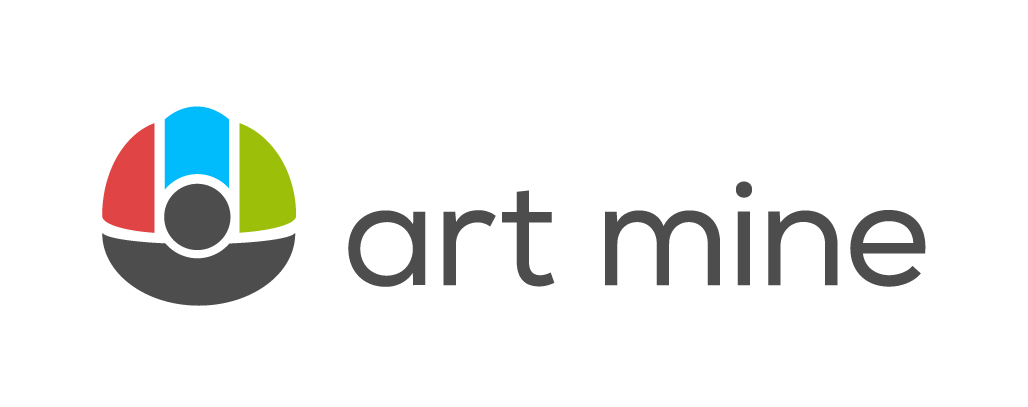
Art Mine is a young multicultural NGO based in Austria serving the public interest and common good. We promote art, culture, cultural diversity, interculturality and intercultural dialogue. Since its founding in 2014 Art Mine has frequently organised activities in the field of culture. For one of its main art projects called “See the Big Picture” it asked artists and photographers from all around the globe, both professionals and hobbyists, to share their view on the world and create pictures that depict their unique perspective. Apart from art exhibitions Art Mine also established a very successful music series called “Tower of Songs” that hosts national and international artists from different genres. In 2019, Art Mine started another cultural project with a particular focus on regional development by revitalizing the old grain mill ‘Simon Mühle’. Putting the historic building back to use – providing cultural treats like readings, exhibitions and concerts – the place soon became one of the most vivid emblems of the city. The mill does not only function as a workplace for the team but also provides an important space for the local community. In addition to its cultural activities Art Mine has hosted and participated in a variety of Erasmus+ mobilities in Key Action 1, such as Youth Exchanges, and has had five participants from European Solidarity Corps so far.
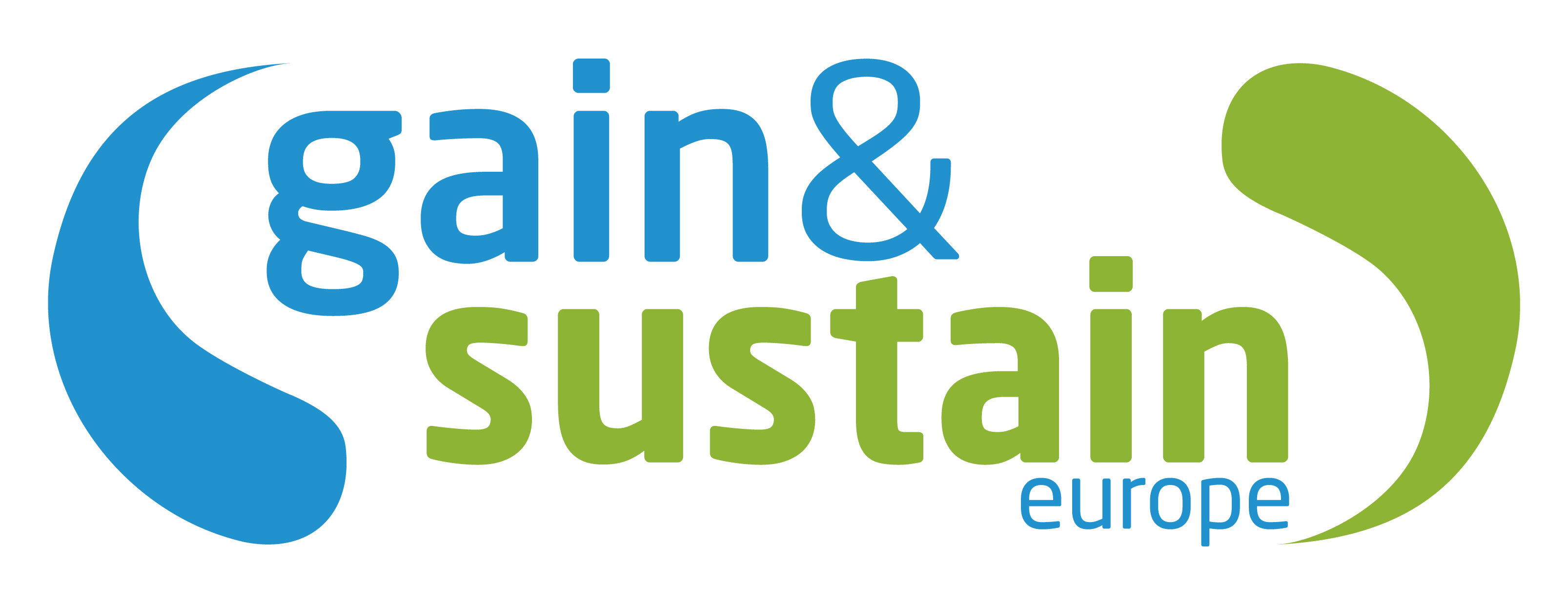
The association “gain&sustain:europe” was founded in 2009 in Graz, Austria. The organisation aims to support social, economic and ecological sustainability in Europe and developing countries all over the world. We develop our services with heart and mind and are competent partners in funding consulting, project development and implementation as well as mediation and youth work. Our services are open to all people and offered in a networked context. In doing so, we value methodology and interdisciplinary thinking and acting. The active participation of representatives and partners from different stakeholder groups and perspectives enables a multidisciplinary approach and sustainable, win-win effective strategies for all involved. In the centre of our activity stands the desegregation of politics, society and economy. We work with youngsters in global context and step into open dialogue and generate valuable common strategies for the present and the future. As our major task we see the interlinking and consultation of youngsters in connection with international, multicultural events and EU projects to promote a raise of awareness in the direction of tolerance, EU citizenship and cultural diversity with the generation of tomorrow. The main objective of the association is the interlinking of single organisations and individuals, above all youngsters, around subjects like sustainability and social entrepreneurship in order to give space to innovation & creativity and to allow a cultural exchange. In CHEER YOU @P, Gain&Sustain is the leader organisation. The COVID19 pandemic and the upcoming financial crisis make it difficult for young women to find jobs. Initiating our own project was a good option instead of “waiting for the dream job”.We base our work on honesty, mutual responsibility and maximum access to information, as pillars of social and economic accountability to our partners, collaborators, donors, beneficiaries and to society in general.
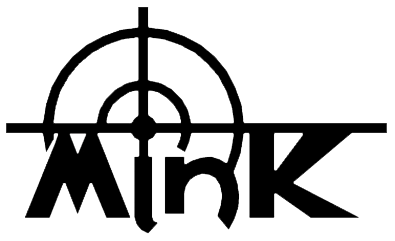
Organization was founded in July, 2000. Continuous activities of the Association Mink Tolmin include representing cultural, informative, creative, educational and international cooperation practice in the field of music, art, creative industries, and film. The general aim and vision of Association Mink is the empowerment and optimization of cultural and social capital within the context of a region characterized by poor mobility infrastructure due to the geographic location. We counteract this infrastructure by inviting international artists to the region. We try to counteract population decrease & conservative social beliefs by bringing a “stream of difference” into the region focusing on a strong educational purpose for all inhabitants especially youth. All our projects foster networking and alternative ways to develop and promote the region by combining contemporary arts, education, and digitalisation.
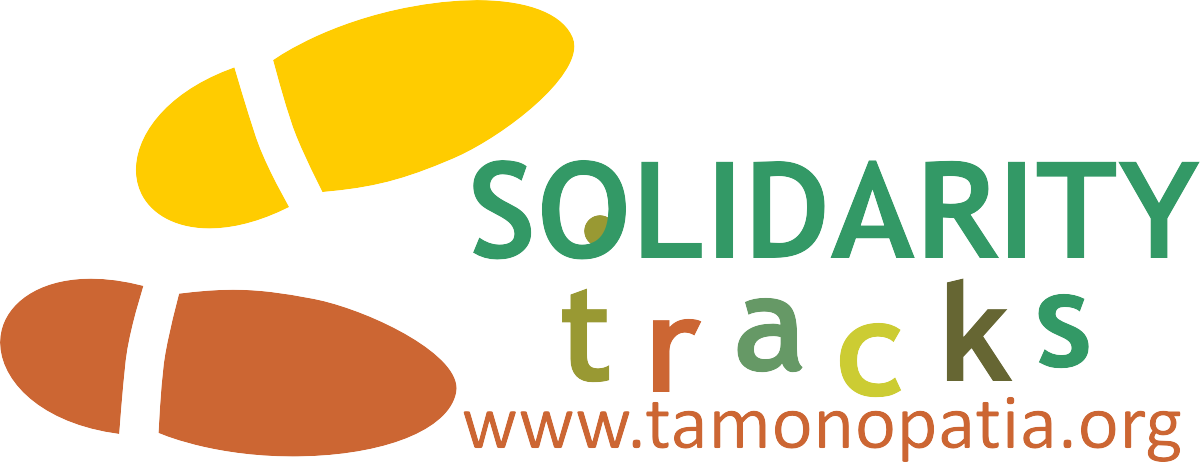
“MONOPATIA ALLILEGGIIS” or “Solidarity tracks” is a non-profit social enterprise which was created in 2007, and which works on three main sectors: Educational mobility, European and international cooperation and local development in social, economic and environmental topics. “MONOPATIA ALLILEGGIIS” is focused on popular education that promotes knowledge, skills and attitudes, justice and equality in an intercultural society and in an interdependent world. Our approach is based on the pillars of education, our methods on non-formal education, active learning and learning by doing.
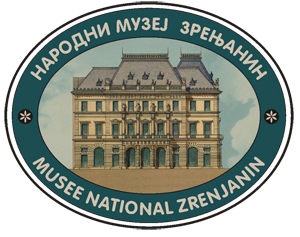
Zrenjanin National Museum is complex type museum with a regional character. Its research covers Central Banat District. More than 33,000 museum objects are classified as collections of five departments, some of the collections being: collection of firearms and cold weapons, collection of gilt hats, collection of paintings especially from the 18th and the 19th century, collection of pre-historic and Middle Age jewellery, bird collection. The museum also has its pedagogical-informative service, documentation centre, restoration and conservation workshops, photography department, carpenters’ studio, as well as its own library with over 5,000 vocational titles. 1200m2 of the museum space is designated as area for permanent exhibition. On the first floor the visitors are invited to visit the artistic part of our permanent exhibition, comprised of two segments – visual arts and applied arts. On the first floor there is also sports’ room while on the second floor another part of the permanent exhibition is on display, comprised of collections organized by: natural-history, archaeology, history and ethnology departments. The collections are presented either as part of the permanent exhibition or through various theme exhibitions. Due to its great number of visitors – more than 85,000, 34 theme exhibitions and renovation of the permanent exhibition, Zrenjanin National Museum was awarded as the best Serbian Museum for the year 2006.